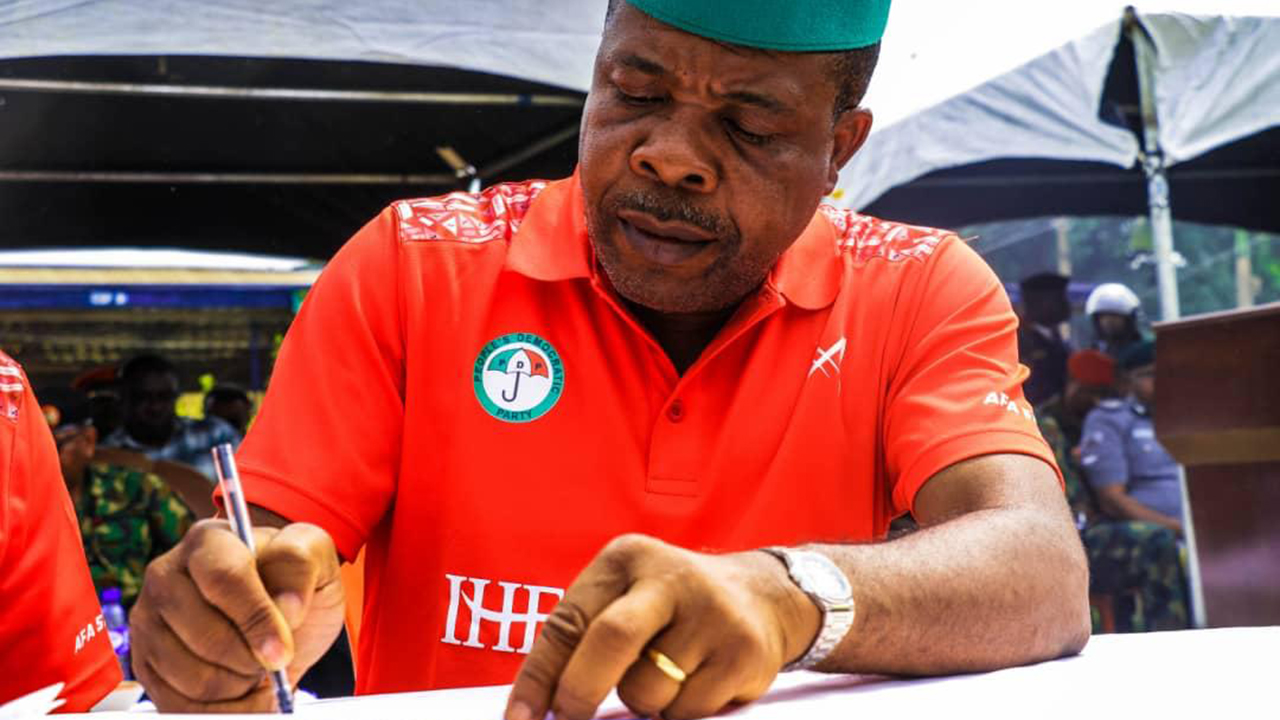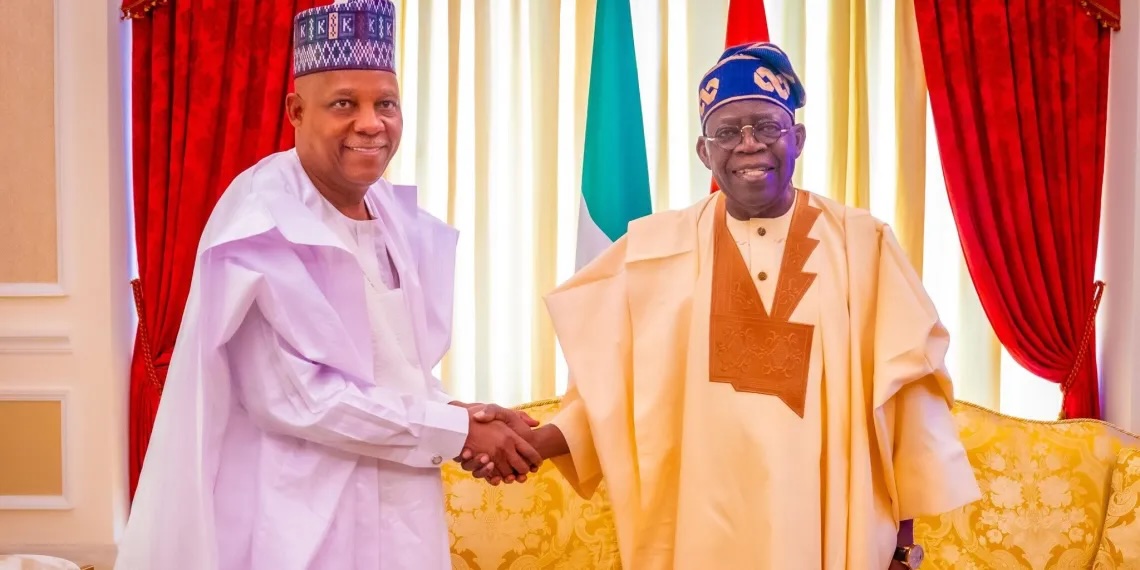
What today is called Imo State was a large farmstead within the geographical circuit of the defunct Eastern Region that was split into three states by the Yakubu Gowon military government at the onset of the Nigerian civil war in 1967. The indigenous Igbo populations that occupied Imo land were mostly farmers who cultivated variety of subsistence and cash crops among which was palm produce, one of Nigeria’s major export crops at independence. A little over four decades later, Imo has grown from being a large farmstead to one city state by dint of hard work of the people.
At the beginning, there were few motorable roads across the length and breadth of Imo State. The only tarred roads passing through Owerri, the state capital then were colonial roads which included the Owerri-Umuahia road via Mbaise; Owerri-Aba road; Owerri-Port-Harcourt road via Elele; Owerri-Okigwe road and Owerri-Onitsha road. As if by design, all the roads radiated from Owerri, which then was the biggest suburban centre in the region. The iconic Maria Assumpta Cathedral, arguably, was the only prominent edifice bestriding the Onitsha and Elele roads at the popular Control Roundabout. Electricity was a fairy tale seen only in Owerri. There was no airport, no telephone; the Alvan Ikoku College of Education was the only tertiary institution in the entire Imo State. The creation of Imo State was more like an assignment to the people to go and develop the area.
It was therefore a major challenge, indeed, a daunting task for the people and the leadership to create something out of nothing. That challenge seems to have enamored the spirit of the people to roll their sleeves and get down working. The new dawn breaking in Imo State provides an opportunity to highlight some key development strides that have been recorded in the state.
The developments that now define Imo State did not start from the outset. To be specific, Imo State was created on February 3, 1976 by General Murtala Muhammed. By August 27, 1991, Abia State was carved out of the old Imo State. Since its creation, 14 leaders have presided over the affairs of State either as military administrators or civilian governors. Of the fourteen, only five were actually civilian governors while nine were military. It is needless to list all the names that have presided over Imo State.
Suffice it to say that whereas the military administrators presided over the state affairs largely on “as it is basis”, without making any significant impact. Virtually, all the developments that have been recorded were at instance of few civilian governors. This happened over a period of roughly 23 years out of 40. That is to say, 17 years in the existence of Imo State were wasted. The four civilian governors in question were Samuel Onunaka Mbakwe (Sam Mbakwe) 1 October, 1979 – 31 December, 1983; Evan Enwerem, January 1992 – November, 1993; Achike Udenwa, 29 May 1999 – 29 May 2007; Ikedi Ohakim, 29 May 2007 – 29 May 20011 and the incumbent Owelle Rochas Okorocha, 29 May 2011 – date.
The developments in Imo today came mostly under two governors, namely: Sam Mbakwe and Rochas Okorocha. The other civilian governors may have accomplished something but such developments were skewed in one part of the state with nothing to show for the other parts.
For example, while Evan Enwerem re-established the new Imo State University (IMSU) at Owerri after the original IMSU, established by Sam Mbakwe at Uturu Okigwe, was ceded to Abia State in I991, Achike Udenwa concentrated his effort only in Orlu, his home senatorial zone, leaving other parts of the state blank. It was Achike Udenwa who opened the floodgate of development in Orlu zone. His most striking achievement was the establishment of the Faculty of Medicine and Surgery of the Imo State University in Orlu. This and other infrastructure developments he initiated in Orlu remain the legacies of his 8-year administration. He could have done more for the state but couldn’t.
Now, coming back to Sam Mbakwe, popularly called the “Crying Governor” because of his penchant to ask for more for Imo State from the Federal Government, this was the man who could be described as the father of modern Imo State. Mbakwe presided over the old Imo State comprising the present Imo and Abia states and parts of Ebonyi State. The transformation of Imo State actually began with him. When Mbakwe assumed office in 1979, Douglas was the only road passing through the centre of Owerri. The road was dilapidated and there were still mud houses with thatched roofs on both sides of Douglas.
Mbakwe did not waste time to get to work as soon as he assumed office. With practically nothing on ground to build on, Mbakwe started from the scratch to put things in place. His first assignment was to give Owerri a facelift. Douglas road was rehabilitated and made motorable. This was followed with the opening of Wetheral road, serving as a ring road, to reduce traffic on Douglas, the only arterial road in Owerri.
The iconic Mbakwe then embarked on the construction of Imo Concorde Hotel (a five-star hotel) and the Imo Airport. Mbakwe fought a battle with the federal authorities who initially opposed the construction of the airport and refused to give support. Undaunted and determined to make a mark, Mbakwe persisted on the airport project without federal assistance. Instead, contributions came from Imo people who gave their full support to the project.
Within one term in office, Mbakwe’s accomplished what most governors could not do in eight years. His legacies included rural roads development in all the local governments of Imo State; one cottage industry in every local government area and above all the establishment of the Imo State University (IMSU).
Besides, the first ever independent power project – the Amaraku Power Plant, sold by the succeeding military administration, was built by Mbakwe. Mbakwe’s foresight was uncommon. He set Imo State on the path of incomparable socio-economic development before the administration was sacked in December 1983, just at the onset of his second term in office.
The sacking of Mbakwe among other governors in a military coup truncated what could have been another four years of meteoric development in Imo State. Mbakwe could have consolidated his achievements during his second term but that never happened. The military administrators that succeeded him in Imo State from December 1983 to May, 1999, contributed little or nothing to the development of the state. Over this period, Imo State witnessed stagnation, until a new era dawned on May 29, 1999, with Achike Udenwa as governor.
I have earlier highlighted Udenwa’s appreciable impact in Orlu zone. Suffice it to say that after Achike Udenwa ended in 2007, little was added to Imo State until 2011, when Rochas Okorocha came on board and assumed the mantle of leadership.
Okorocha’s strong belief in free education marked him out and garnered support for him. His campaign trail in 2011 rode on the free education mantra, which many didn’t believe was possible. As it were, all of Okorocha’s accomplishments in Imo state can be classified under education and infrastructural re-development as evident in Owerri urban, Orlu and parts of Okigwe. But the rest of the communities were largely neglected.
For centuries, Imo citizens, like the rest of the people from the other parts of the country (except the South-West to some extent), have wallowed in mass ignorance as millions of families could not afford school fees for their children. The old Western Region, which embraced free education in 1954 under the dynamic leadership of Chief Obafemi Awolowo, fared better than the rest of the country.
Conversely, Igbo children (boys in particular) were sent out by their parents to learn a trade. The girls were completely left out of the education equation. It wasn’t that the Igbo man was inherently business minded. It was the circumstances that forced it; the failure to go to school forced thousands to embrace menial businesses as a survival strategy. And, since it was easier to become breadwinner through the short-cut of engaging in business than going to school, most people embraced artisanship and petty trading as a way of life.
The task before Emeka Ihediioha, the new governor is enormous. The free education policy has to be re-tuned to make it more effective. Focus should be on pre-tertiary education up to senior high school. The infrastructural re-development stride should shift to parts of the state that have been neglected for two decades. A systematic and people-oriented action plan would put Imo on a more enviable position.
This column would go on vacation for a while.






